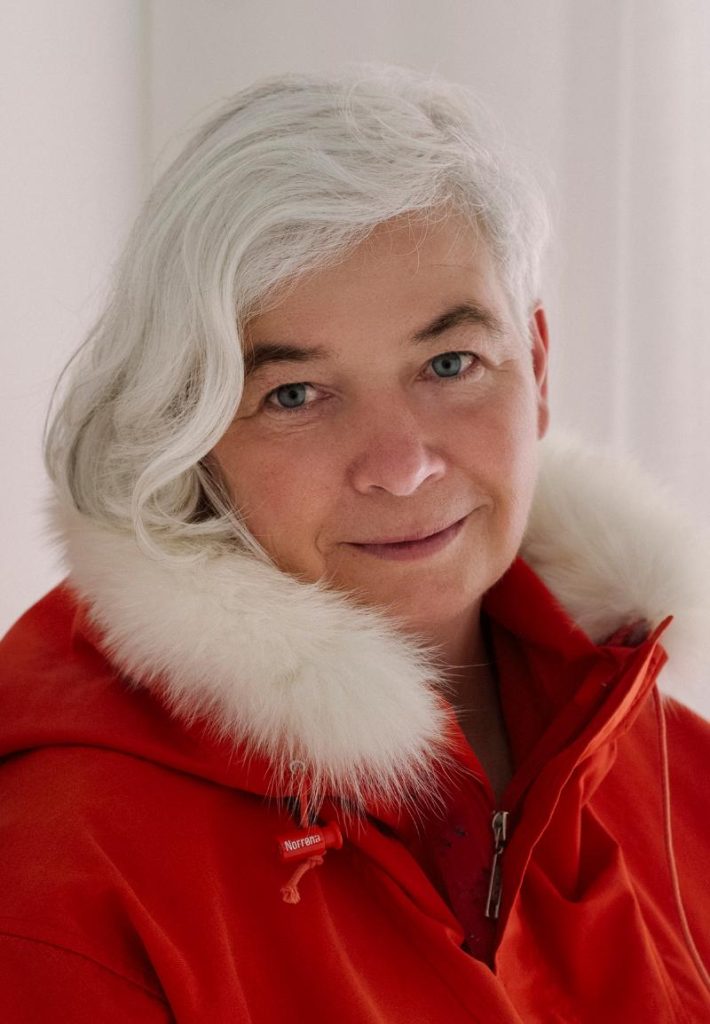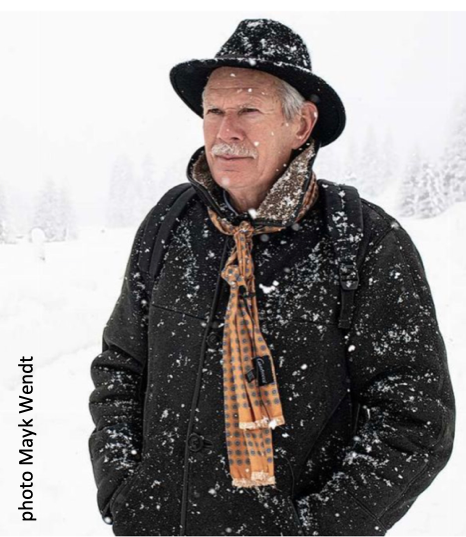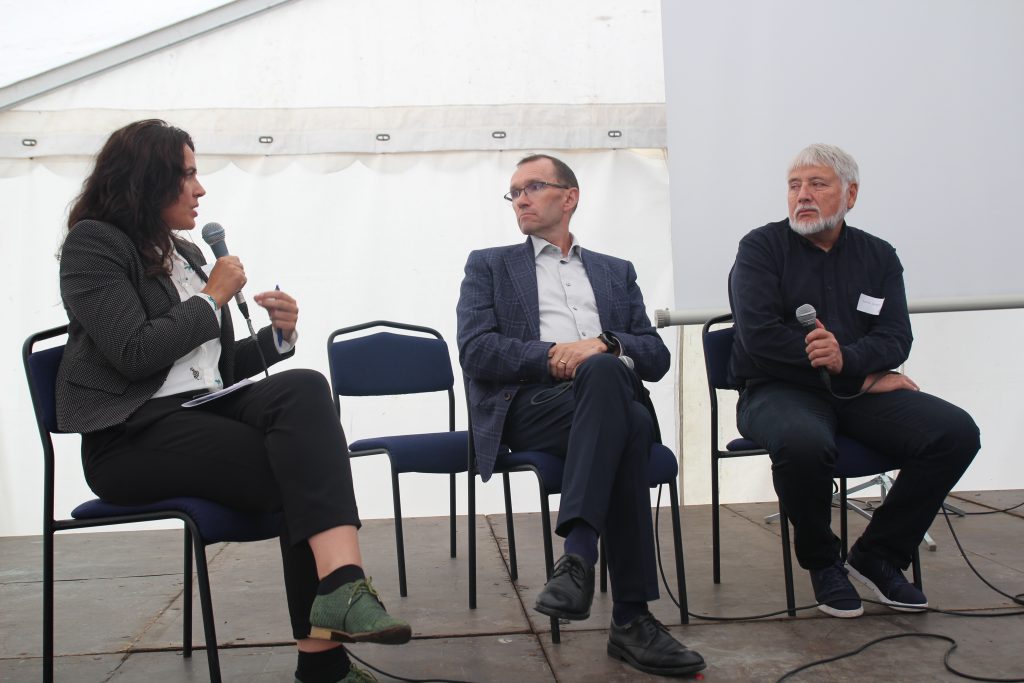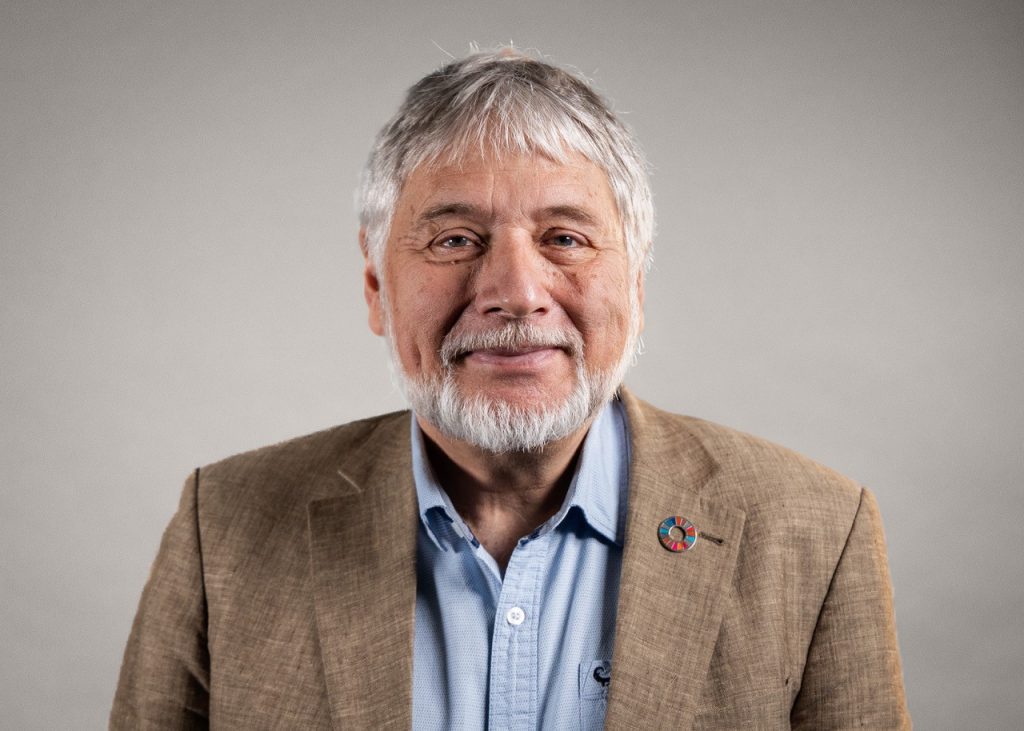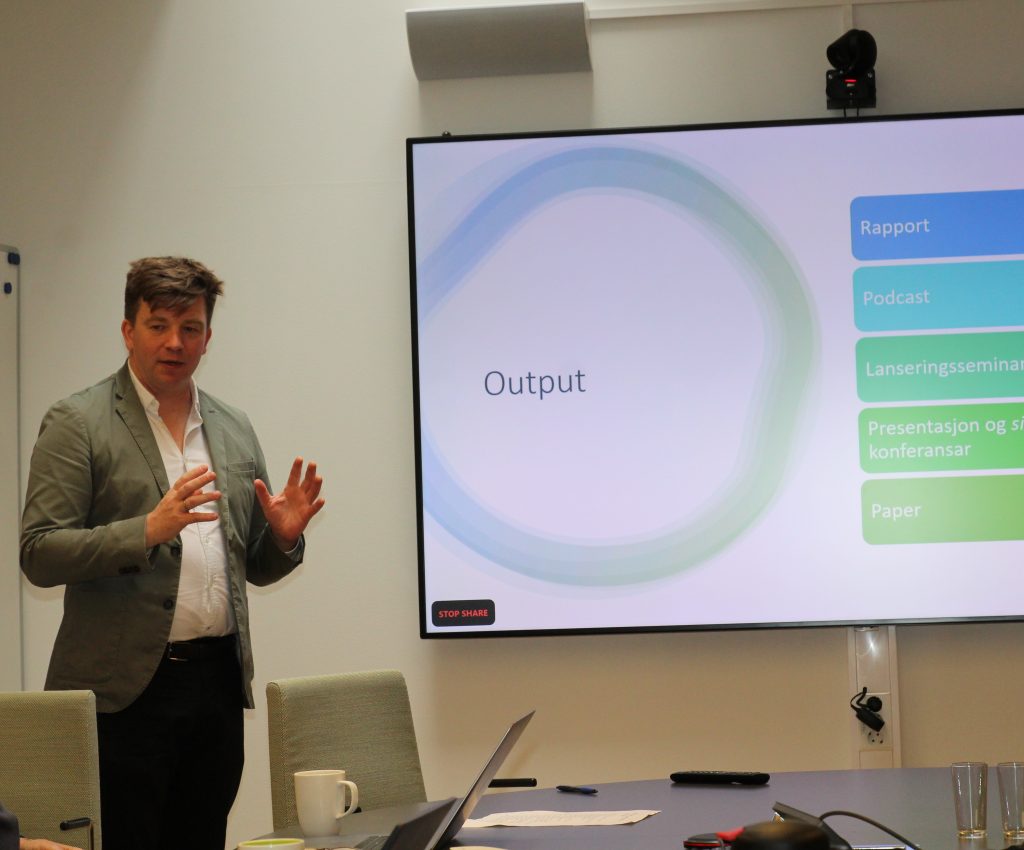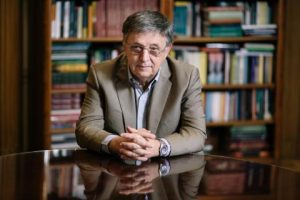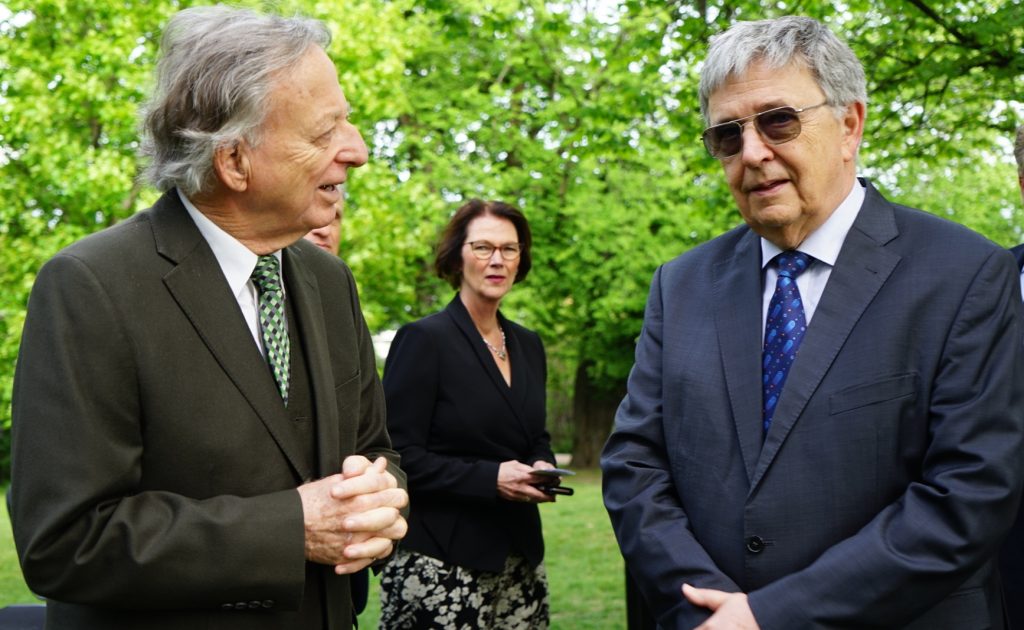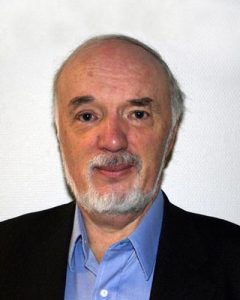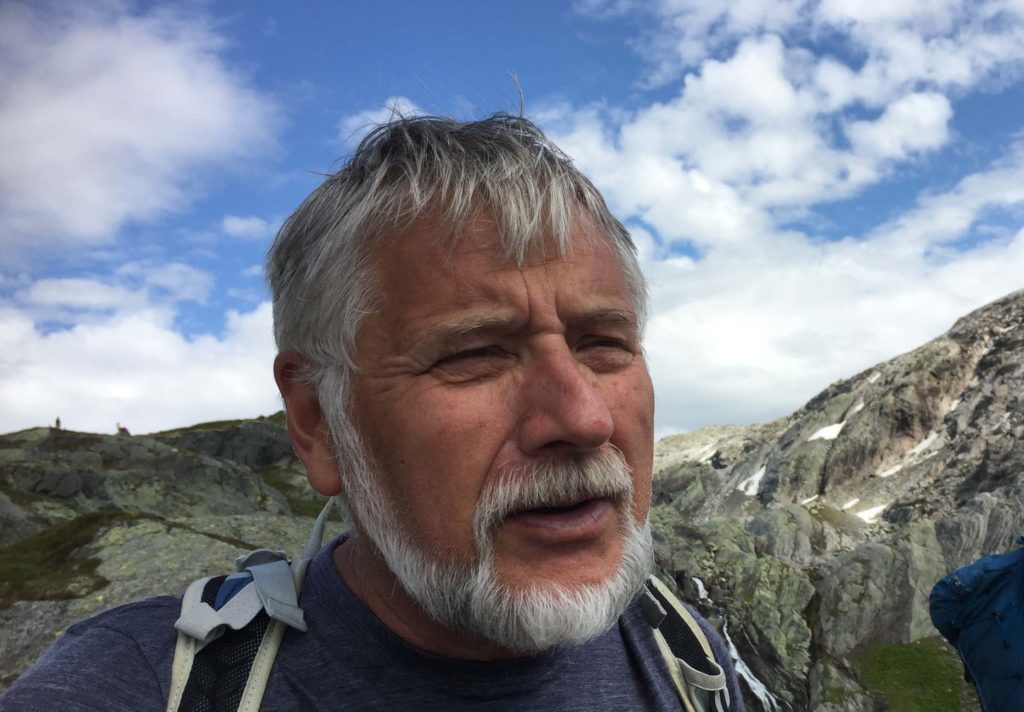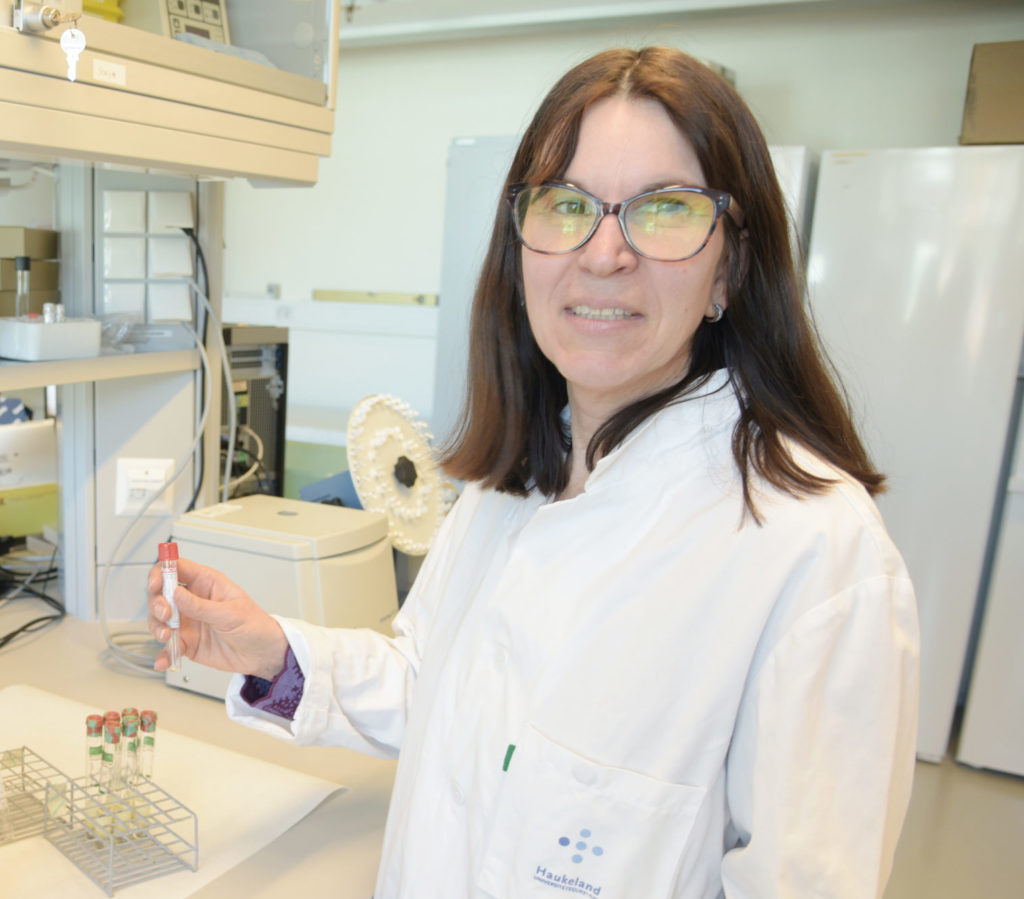The AE-Bergen Knowledge Hub held meetings with both the Advisory Board and Steering Group in June 2022.
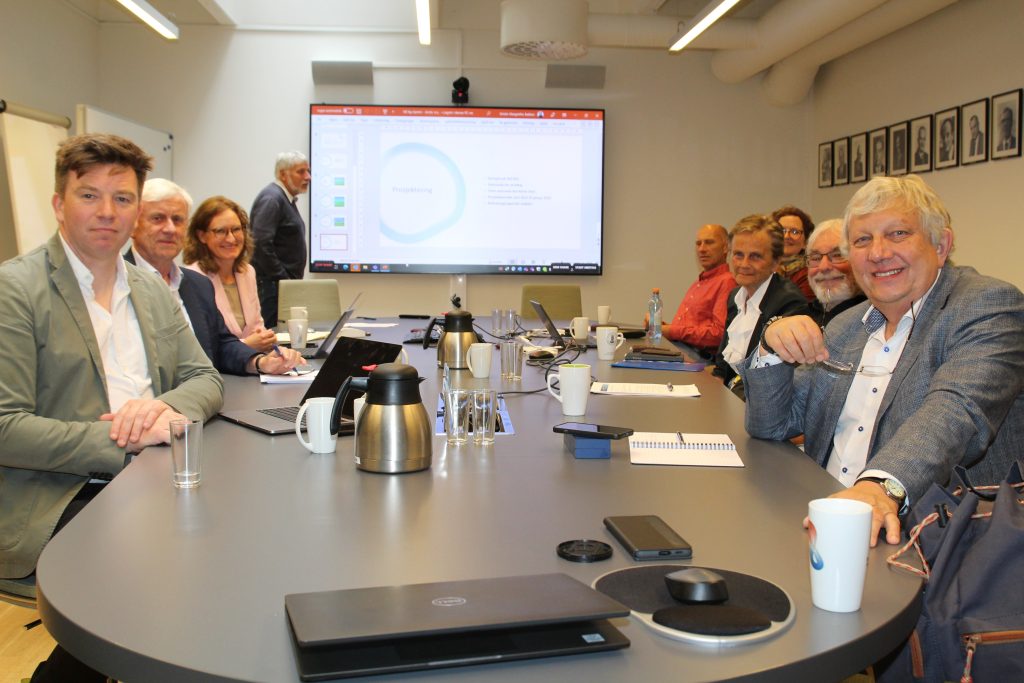
The Steering Group of the AE-Bergen Knowledge Hub. Photo: Nils Olav Sæverås
For the Steering Group, which is based in Bergen, it was finally possible to have a physical meeting on June 16th, after virtual meetings during the pandemic. For the Advisory Board, with members from the Nordic and Baltic region, there was a virtual meeting on June 17th.
The Academic Director of the hub, Eystein Jansen, gave an overview of the hub activities of the past year, as well as some upcoming projects.
Among the 2021/22 activities summed up in Jansen´s presentation, were our participation in the Rosendal Week, as well our cooperation with NTVA-Bergen and Tekna on local technology seminars. The Hub also offered technical support for the Academia Europaea Building Bridges 2021 Conference, as well as the SAPEA webinar om new energy systems on October 11th. The AE-Bergen Knowledge Hub organized the founding of the AE Task Force on Environment, Climate and Sustainability, including a survey among members and report to the AE Board.
Arctic Frontiers Side-Event
Turning the page to 2022, we co-hosted a Norwegian webinar on biodegradable plastics held by NORCE scientist Gunhild Bødtker on March 23rd. We also co-hosted the Darwin Day lecture by Professor Yadvinder Malhi, as well as organized a side-event on deep-sea mineral mining during the Arctic Frontiers conference. In late May, we were honored to host László Lovász, the academic director of our sister hub in Budapest, for two days during his Norway visit. We also co-hosted his lecture “Graphs and Geometry”.
Many of these activities, including the local technology seminars with NTVA-Bergen and Tekna, will continue in the autumn. A new, major project in the autumn, is a report coordinated by Ole Øvretveit on the effects of the Ukraine War on science diplomacy and scientific cooperation in the Arctic. There will be more news on this major project at our website as the project progresses in the autumn.
AE-Bergen Knowledge Hub Steering Group:
Dag L. Aksnes; MAE, Professor, Univ. of Bergen (Marine biology)
Petter Bjørstad; MAE, Univ. Bergen (Informatics)
Kjersti Fløttum; MAE, Univ. Bergen (Linguistics)
Jessica Jewell; Research scholar/Assoc. prof., IIASA/Univ. of Bergen (Energy and Political science)
Matthias Kaiser; Professor, Univ. of Bergen (Philosophy of science)
Stein Kuhnle; MAE, Professor, Univ. of Bergen (Political science)
Dieter Roerich; MAE, Univ. Bergen (Physics)
Anne Gro Salvanes, MAE, Professor, Univ. of Bergen (Marine biology)
Sigrid Eskeland Schütz; Professor Univ. of Bergen (Law)
Svein Sundby, MAE, Professor, Institute for Marine Research, Bergen (Oceanography)
Marit Warncke, CEO Bergen Chamber of Commerce and Industry
Ole Øvretveit, CEO Initiativ Vest
AE-Bergen Knowledge Hub Advisory Board:
Margareth Hagen; Chair, Rector and Professor, University of Bergen, Norway (Italian Literature)
Erland Källen; MAE, Professor, University of Stockholm, Sweden (Meteorology/Climate)
Kirsten Drotner; MAE, Professor, University of Southern Denmark, (Media)
Carl G. Gahmberg; MAE, Professor Emeritus, University of Helsinki, Finland (Molecular and Integrative Biosciences)
Björn Wittrock; MAE, Professor Emeritus, Uppsala University and Vice President AE
Jüri Allik; MAE; University of Tartu, Estonia (Psychology)
Ole Arve Misund; MAE, Director/Professor Tromsø (Marine and fisheries biology)
Martin Fernø; MYAE, Professor, University of Bergen (Physics)
